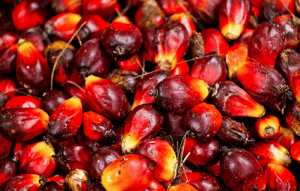Cheap vegetable oils said to be killing oil palm industry in Ghana
 Mr Samuel Awonnea Avaala, President of the Oil Palm Development Association of Ghana (OPDAG) has said that the import of cheap sub-standard vegetable oils into the country is killing the local oil palm industry.
Mr Samuel Awonnea Avaala, President of the Oil Palm Development Association of Ghana (OPDAG) has said that the import of cheap sub-standard vegetable oils into the country is killing the local oil palm industry.
“The imported oils have a significant negative impact on the refining sector and a ripple effect on the value chain, including farmers, and all direct/indirect dependants in the palm oil sector,” he said.
Speaking at the Association’s first stakeholder meeting in Accra, which brought together major players in the Oil-palm value chain, Mr Avaala said such trade practices were causing substantial revenue loss to Government.
“With appropriate duty, the palm oil sector will be able to attract investors to invest in the plantations (which normally come with associated smallholder and outgrower schemes) and this in the long run will increase local production of crude palm oil and reduce the importation of the commodity,” he said.
To achieve this, Mr Avaala said the country needed to double its palm oil output in the next 10-15 years to become self-sufficient and save the foreign exchange used on palm oil importation.
Also, it must deal with land acquisition, which is a major constraint to the production of the crop.
In Ghana, oil palm is the fifth largest crop in terms of area planted (about 397,000 hectares). However, demand for oil palm products and its derivatives remains high and unmet, making the country a net importer of crude palm oil and palm olein.
Recent figures indicate that total local palm oil production is about 240,000 metric tonnes per annum, whiles total demand is around 290,000 metric tonnes per annum leaving a deficit of about 50,000 metric tonnes.
This gap is growing in tandem with improving standards of living and population growth.
“To ensure the promotion of the growth and development of the oil palm industry in Ghana, OPDAG will undertake strong consultations and advocacy work to ensure that land acquisition becomes attractive to investors and growers, who would like to expand their areas under production,” Mr Avaala said.
He said the Association would help to promote the adoption of best management practices by smallholder farmers to increase their farm yields and milling practices.
Research work by the Sustainable West African Oil Palm Programme (SWAPP) has shown that Smallholder farmers can increase farm yields and in some cases double their yields through the adoption of best management practices in their farm operations and milling practices.
In addition, OPDAG will also play a role in ensuring the adherence to the approved sustainable agricultural practices as prescribed by the Round Table on Sustainable Palm Oil (RSPO).
The country can boast of about 10 key plantation companies that are creating employment in the oil palm sector for more than 240,000 people and are also helping to reduce the rural urban drift.
In addition to the above plantation companies, there are large numbers of smallholders and out growers presenting enormous opportunities for employment and wealth creation in the rural communities.
The out growers in particular, account for about 80 per cent of the country’s total palm oil and palm kernel oil production, but sadly, they are the least productive in crop production/yields and technically deficient in product quality and extraction rates.
The oil palm tree provides a host of products; the crude palm oil is used in the manufacture of soaps, vegetable oils, margarine, and products in the cosmetic and pharmaceutical industries.
Biodiesel is another area (though developing) where oil palm provides humanity with an alternative to fossil fuel.
The meeting was held on the theme: “Harnessing the full potential of the Oil Palm industry in Ghana,” and was supported by Solidaridad and the Busac Fund.
Source: GNA
